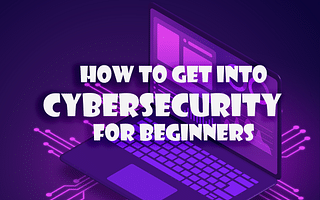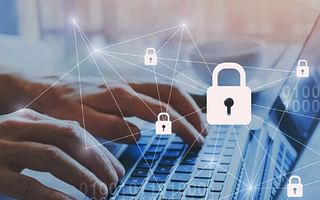Maya Braun is a seasoned expert in the realm of cryptography, driven by a profound interest in data privacy. Her professional journey has been dedicated to the design and development of secure communication systems, while also being a vocal advocate for digital rights. Maya takes pleasure in penning down her thoughts on the latest breakthroughs in cryptography and their potential impacts on privacy.
Data security is of utmost importance in today's digital world, where our personal and sensitive information is constantly at risk. To help you protect your data and maintain your privacy, I've compiled a comprehensive guide on best practices and techniques for ensuring data security.
1. Use strong and unique passwords: One of the simplest yet most effective ways to secure your data is by using strong, unique passwords for all your accounts. Avoid using common passwords or personal information that can be easily guessed. Instead, create complex passwords that include a combination of uppercase and lowercase letters, numbers, and special characters.
2. Enable two-factor authentication (2FA): Two-factor authentication adds an extra layer of security to your accounts by requiring you to provide a second form of verification, such as a fingerprint scan or a unique code sent to your mobile device. This ensures that even if your password is compromised, unauthorized access to your accounts is prevented.
3. Keep your software up to date: Regularly updating your operating system, applications, and antivirus software is crucial for data security. Software updates often include security patches that fix vulnerabilities and protect against emerging threats. Enable automatic updates whenever possible to ensure you're always running the latest, most secure versions.
4. Encrypt your data: Encryption is a powerful technique that converts your data into an unreadable format, making it inaccessible to unauthorized individuals. Use encryption tools or software to encrypt sensitive files, emails, and communication channels. This way, even if your data is intercepted, it will be useless without the decryption key.
5. Be cautious of phishing attacks: Phishing attacks are a common method used by cybercriminals to trick individuals into revealing their sensitive information. Be wary of suspicious emails, messages, or links that ask for personal or financial details. Always verify the source before providing any information and avoid clicking on unknown or suspicious links.
6. Regularly back up your data: Data loss can occur due to various reasons, including hardware failure, malware attacks, or accidental deletion. Regularly backing up your data ensures that even if something goes wrong, you can restore your important files and documents. Use external hard drives, cloud storage, or backup services to securely store your backups.
7. Practice safe browsing habits: When browsing the internet, be cautious of the websites you visit and the files you download. Stick to reputable websites and avoid clicking on pop-up ads or downloading files from unknown sources. Install a reliable antivirus software that can detect and block malicious websites and files.
8. Secure your home network: Your home network is a gateway to your devices and data. Secure it by changing the default router password, enabling network encryption (WPA2 or WPA3), and regularly updating your router's firmware. Additionally, consider using a virtual private network (VPN) when connecting to public Wi-Fi networks to encrypt your internet traffic and protect your data from potential eavesdroppers.
9. Educate yourself and stay informed: Stay updated on the latest cybersecurity threats and best practices. Follow reputable cybersecurity blogs, news sources, and experts to learn about new vulnerabilities and techniques used by hackers. By educating yourself, you'll be better equipped to protect your data and make informed decisions regarding your digital security.
Remember, data security is an ongoing process that requires constant vigilance. By implementing these best practices and techniques, you can significantly enhance your data security and protect your privacy in the digital world. Stay informed, stay proactive, and stay secure!















